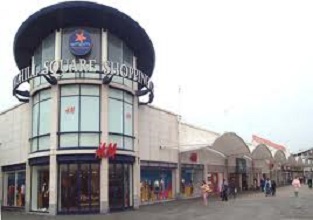Brighton and Hove is in a better economic position than much of the wider city region, according to a leading local business figure.
Gavin Stewart, executive director of the Brighton and Hove Economic Partnership, spelt out some of the challenges faced by local firms.
But he told political, business and education leaders that the situation in Brighton and Hove was “not as bleak” as in other parts of Sussex.
Mr Stewart told a meeting of the Greater Brighton Economic Board that national businesses were closing premises and laying off staff.
But, he said, they tended to be keeping a presence in places like Brighton.
At the “virtual” meeting on Tuesday (20 October) Mr Stewart told the board that he had consulted with a wide variety of businesses on behalf of Brighton and Hove City Council.
Mr Stewart said: “What we’re hearing from national retailers especially is there’s going to be a significant number of shops closing, There’s no two ways about it.
“What they’re looking to do is concentrate their efforts in more regional hubs.
He described the situation as “relatively positive news” for Brighton and Hove, as one of the top retail centres in the region.
The number of people visiting central Brighton had increased over the summer but had not reached pre-lockdown levels, he said.
Footfall was currently at about 60 per cent of the level before the coronavirus outbreak.
He said: “What we are hearing from businesses is footfall is down but spend has gone up.
“In terms of people coming into town to do their shopping, people are coming in specifically to do their shopping. They’re not coming in to browse so much any more.”

Looking at the wider industries prevalent in Brighton and Hove, Mr Stewart said that the Economic Partnership was looking to find out what help freelancers and people working in the arts and culture would need.
He said: “One of the main things has been mental health. Huge swathes of people’s lives have just been stopped overnight.
“There is a need to support grassroots projects and market the city and the wider city region.”
Mr Stewart said that the recent government announcement of funding for the arts and culture supported just the financial part of the problem.
He added: “We can look at monetising 5G so we don’t just have a local or regional audience but we can bring in a worldwide audience to see things at the Dome.
“It is something we should be pushing forward on.”

Businesses in the financial services sector were adjusting to a contraction in central London.
Organisations in Brighton and Hove were talking about opening up their space to other companies, as well as changing office layouts into a more co-working style with breakout spaces.
Brighton and Hove’s outlook was in contrast to the situation in the coastal West Sussex area, including Bognor and Littlehampton, where at least 133,000 people had been furloughed. Many looked likely to lose their jobs.
The board was told that young people aged 16 to 25 looked like being the hardest hit by the prospect of unemployment as the furlough scheme ended.










It’s no fault of Mr Stewart, or the Greater Brighton Board, but the ‘coronavirus measures’ look set to cause the biggest recession in almost a century, and with it, untold harm to people’s health, and to our ability to fund a proper Health Service from taxes. It’s not popular to say it, but this Government, like some other European Governments, have adopted an almost suicidal approach, in economic terms, and the countries enforcing the severest lockdowns have ended up with the highest death rates. A lockdown is no way to beat a virus, but it’s a surefire way to bankrupt a country. Good luck Mr Stewart!